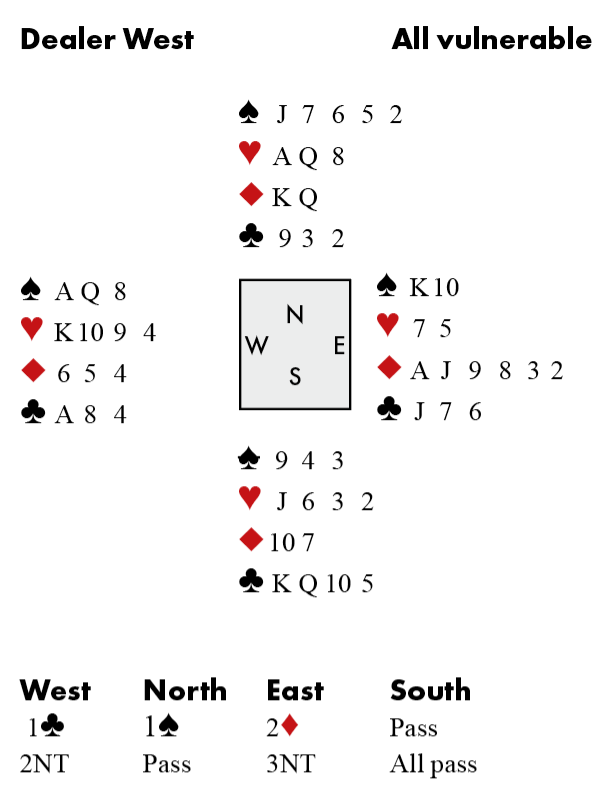Everyone has moments of tiredness during bridge tournaments. But it’s a merciless game. Taking your eye off the ball for a second – even missing something as small as a spot-card – can lead to disaster. At the recent Spring Fours in Bristol, on a team with Sebastian Atisen, Alice Coptcoat and Ollie Burgess, I found myself defending this hand:

Sitting North, I led a spade to dummy’s ♠️10. Sebastian (South) played low, and declarer overtook with the ♠️Q. Next, he led a low diamond. I played the ♦️Q, he ducked, I pondered dummy, turned the trick over and – disaster! I couldn’t recall which diamond Sebastian had played. The ♦️6 maybe? The ♦️4? It would have been a suit-preference signal – this was no time for count – and now I had to guess.
West had a weak NT and had shown up with six points (♠️AQ). If he held the ♥️K, along with the ♣️A or ♣️K, I should play a club – partner could knock out West’s honour, removing the entry to his hand before he could unblock his spades. If West held the ♥️K(xx) and ♣️KQ, Sebastian could win the ♣️A and push a heart through.
But what if West held the ♣️AK or ♣️AQ? I should play a top heart, hoping partner had ♥️KJxx or ♥️Kxxxx. I closed my eyes (for the second time) and played the ♥️A. Wrong! When I apologised to Sebastian later, he asked, as kindly as he could, ‘Would you have remembered if I’d played the ♦️10?’ Yes, I replied. So then you know I played a low diamond. Declarer can’t have the ♦️10 or he wouldn’t have ducked your ♦️Q (I might have ♦️Kxx). So I must have the ♦️10 – and if I’d wanted a heart, I’d have played it’. Aaargh, ever felt like a double-dummy?
Got something to add? Join the discussion and comment below.
You might disagree with half of it, but you’ll enjoy reading all of it. Try your first month for free, then just $2 a week for the remainder of your first year.







